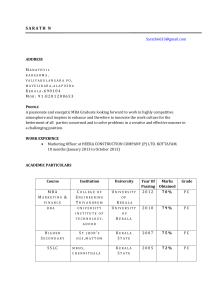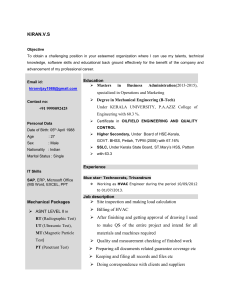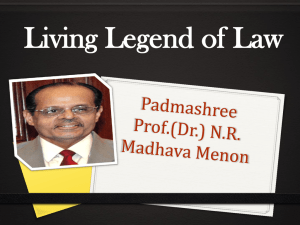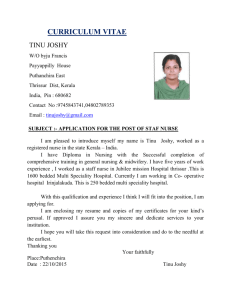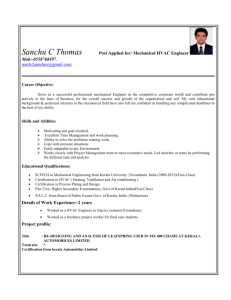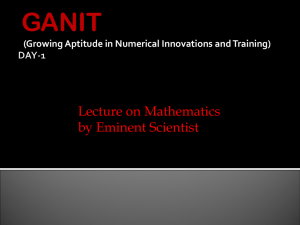Joshy Joseph
advertisement
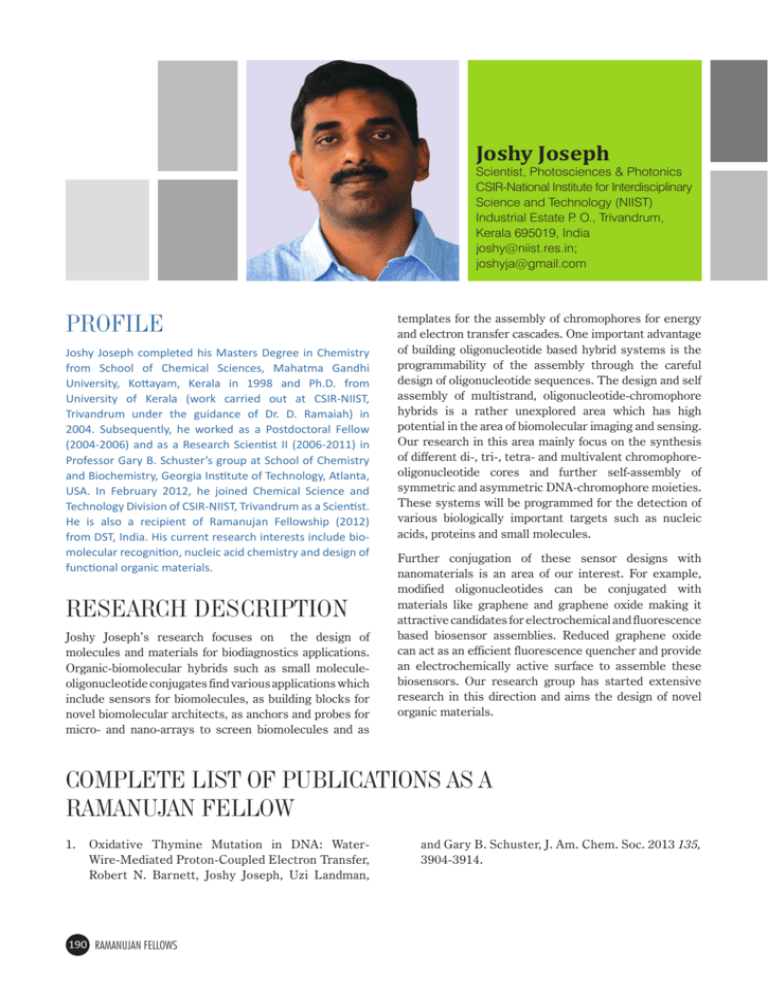
Joshy Joseph Scientist, Photosciences & Photonics CSIR-National Institute for Interdisciplinary Science and Technology (NIIST) Industrial Estate P. O., Trivandrum, Kerala 695019, India joshy@niist.res.in; joshyja@gmail.com Profile Joshy Joseph completed his Masters Degree in Chemistry from School of Chemical Sciences, Mahatma Gandhi University, Kottayam, Kerala in 1998 and Ph.D. from University of Kerala (work carried out at CSIR-NIIST, Trivandrum under the guidance of Dr. D. Ramaiah) in 2004. Subsequently, he worked as a Postdoctoral Fellow (2004-2006) and as a Research Scientist II (2006-2011) in Professor Gary B. Schuster’s group at School of Chemistry and Biochemistry, Georgia Institute of Technology, Atlanta, USA. In February 2012, he joined Chemical Science and Technology Division of CSIR-NIIST, Trivandrum as a Scientist. He is also a recipient of Ramanujan Fellowship (2012) from DST, India. His current research interests include biomolecular recognition, nucleic acid chemistry and design of functional organic materials. Research Description Joshy Joseph’s research focuses on the design of molecules and materials for biodiagnostics applications. Organic-biomolecular hybrids such as small moleculeoligonucleotide conjugates find various applications which include sensors for biomolecules, as building blocks for novel biomolecular architects, as anchors and probes for micro- and nano-arrays to screen biomolecules and as templates for the assembly of chromophores for energy and electron transfer cascades. One important advantage of building oligonucleotide based hybrid systems is the programmability of the assembly through the careful design of oligonucleotide sequences. The design and self assembly of multistrand, oligonucleotide-chromophore hybrids is a rather unexplored area which has high potential in the area of biomolecular imaging and sensing. Our research in this area mainly focus on the synthesis of different di-, tri-, tetra- and multivalent chromophoreoligonucleotide cores and further self-assembly of symmetric and asymmetric DNA-chromophore moieties. These systems will be programmed for the detection of various biologically important targets such as nucleic acids, proteins and small molecules. Further conjugation of these sensor designs with nanomaterials is an area of our interest. For example, modified oligonucleotides can be conjugated with materials like graphene and graphene oxide making it attractive candidates for electrochemical and fluorescence based biosensor assemblies. Reduced graphene oxide can act as an efficient fluorescence quencher and provide an electrochemically active surface to assemble these biosensors. Our research group has started extensive research in this direction and aims the design of novel organic materials. Complete List of Publications as a Ramanujan Fellow 1. Oxidative Thymine Mutation in DNA: WaterWire-Mediated Proton-Coupled Electron Transfer, Robert N. Barnett, Joshy Joseph, Uzi Landman, 190 RAMANUJAN FELLOWS and Gary B. Schuster, J. Am. Chem. Soc. 2013 135, 3904-3914.

